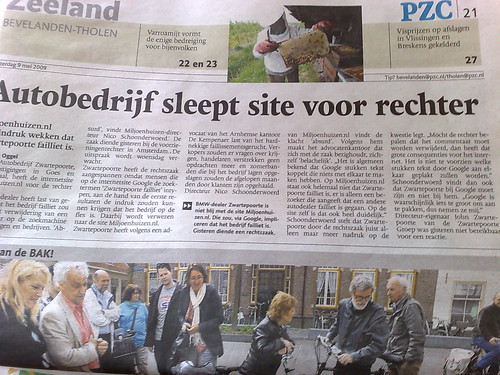I have tried not to do this for a very long time. But today I was triggered to do a list.
5. Lists are usually too long
Every list has to adhere to certain standards. You always have to have a specific number of items. Four never works, you need three or five. That makes lists too long. This one included.
4. Lists are seldom original
As you said before. Really, I cannot imagine nobody writing these things about lists before me. Does that trouble me? Not in the least, because I am compiling MY list. And as it is MY list I can write whatever, right? Well, leaving these two obvious points, we get to my top three irritations.
3. Lists give the impression that they order life
People have a tendency to listen to lists. Maybe that what coined the term in the first place. But if I am realistic, none of the lists I have ever read have the same number one on top as I would have. Not one of them seems to be beyond criticism. Not even the ones based on facts, as we found out with Jeroen Mirck’s Top 40 Dutch twitterazi, which was based on the number of tweets and left me out completely. Which brings me to my next irritation.
2. Lists turn things into competition
A list is the most open form of competition after sports. After all, everyone wants to be heading the list. Though I might need to maken an exception only for the list of “The top ten worst dressed women in the world”. Other than that, everybody wants to be in the top position. And yes, I am guilty myself. I looked at the Top 40 Dutch Twitterazi list and was surprised I was not in there. And I am using surprised because you might otherwise think I would be obsessed. Needless to say, the fire of competition was awoken deep inside me and I had to send Jeroen a quick message asking him for what reason he had left me out. Naturally he put me in right after and then I was annoyed I had just not made the top 10.
1. Lists try to make you deny yourself
And for me, this really is what it is all about. If I am going to keep only a single good intention for the coming year, it will be to let go of lists. We all say that lists do not matter for us, however, our ego grows five sizes if we get published in some sort of list. And yes, I am no stranger to that. But that has to end for me. Why? Because I see people change their behaviour when they are part of a list. They want to go up, or down depending on the subject of the list, and are willing to do what it takes. They are conforming to the masses that have determined the order in the list, or to sensation based media that compiled it. That is a shame. If I look at mosts lists, or most comparisons of numbers, they serve no purpose.
In fact, I think it is even worse. Lists and our need to quantify, order and exalt certain people can kill social media. You might think that I am putting this a bit stern, but let me tell you what I mean. After someone has read a list, he will adapt his behaviour to fit the list better. These would not be things that he would have done otherwise. In fact, he was a perfectly happy human being before he knew of the list. But the list has shown him something he has to change for to achieve. And so we are trying to shape people into being what the list is asking them to be. So, how real and how social can we really be if we are changing ourselves to fit lists? And what is the benefit of these changes to the masses of the internet? If we all try to hit the top of the lists, are we not all going to fail and strand somewhere disappointed in mediocraty? All that trouble, while just being ourself would have gained us much more attention, much more appreciation and much more fun as well.
So here it is. If I do not make another top 40 list of top Dutch anything, that is fine with me. I am not going to bother with them anymore. All I am going to do is to just be my talkative self. And I hope you will to. Lets be social instead of trampling each other in ways to seem a bit bigger.

 I love the future. I have loved it ever since I started reading. Technology is shaping our future fast. Back in 1985 I wrote my first computer program. Back in 1994 I launched my first website and I have been working with organizations on integrating new technology ever since.
I love the future. I have loved it ever since I started reading. Technology is shaping our future fast. Back in 1985 I wrote my first computer program. Back in 1994 I launched my first website and I have been working with organizations on integrating new technology ever since.